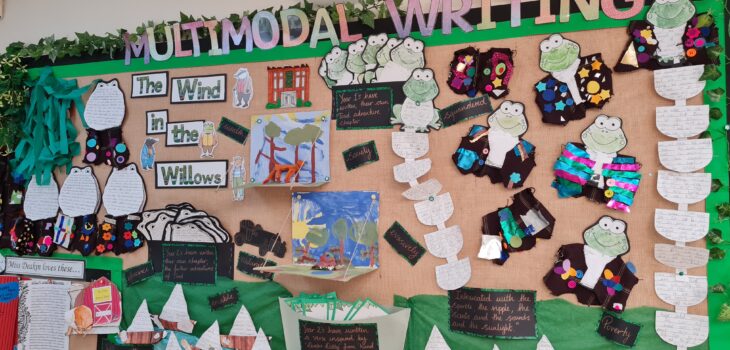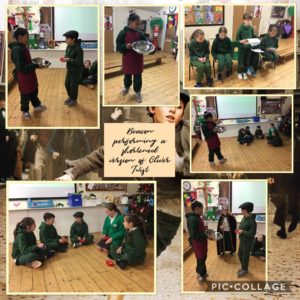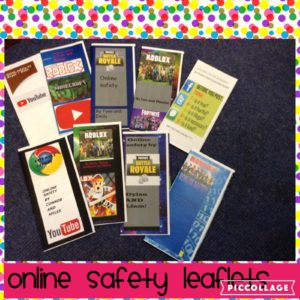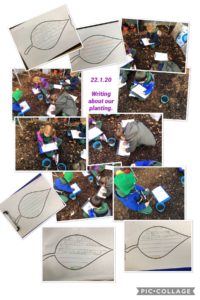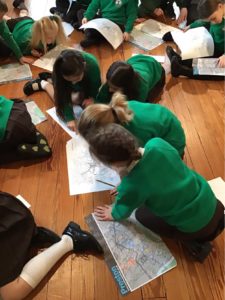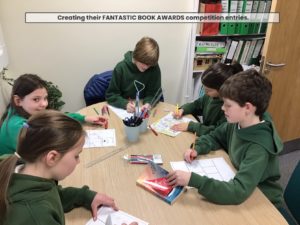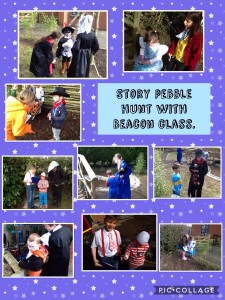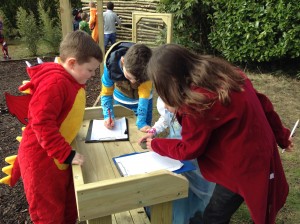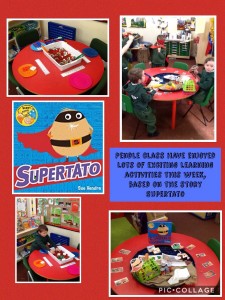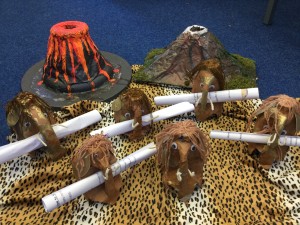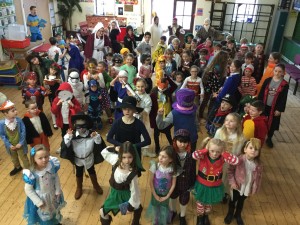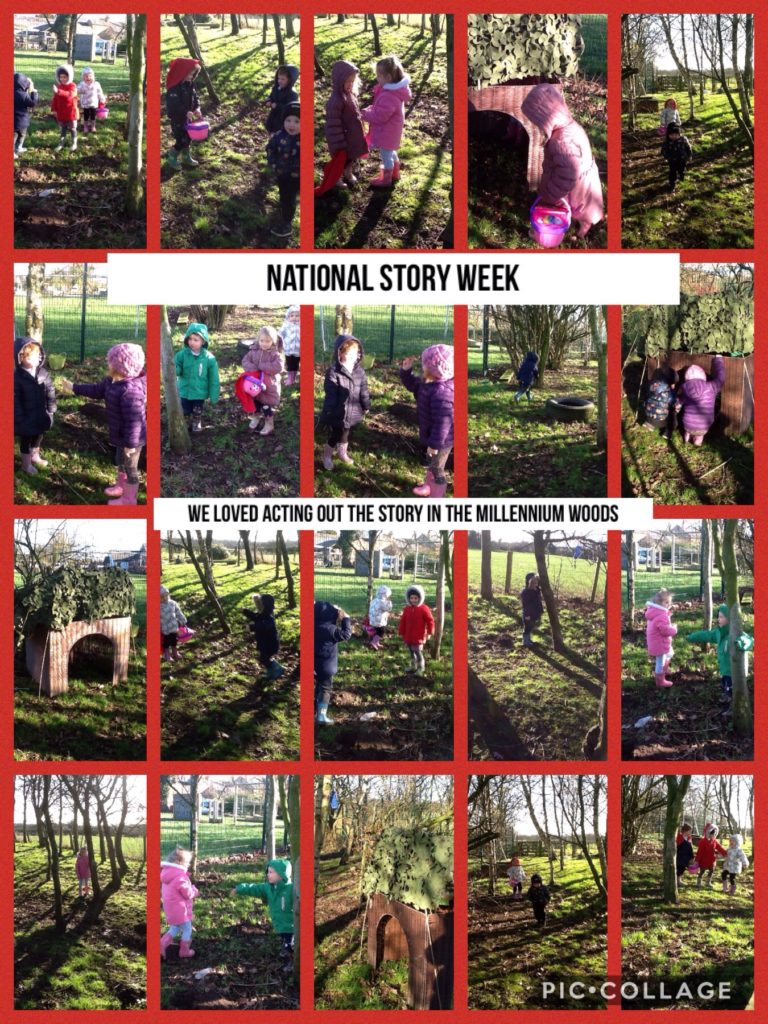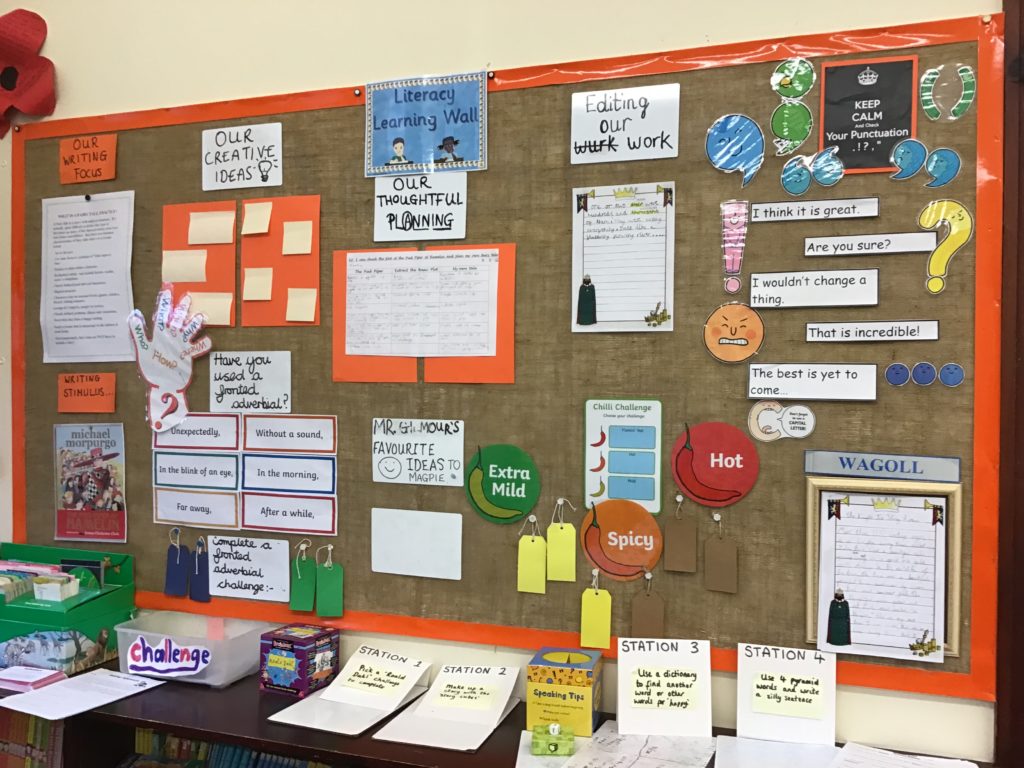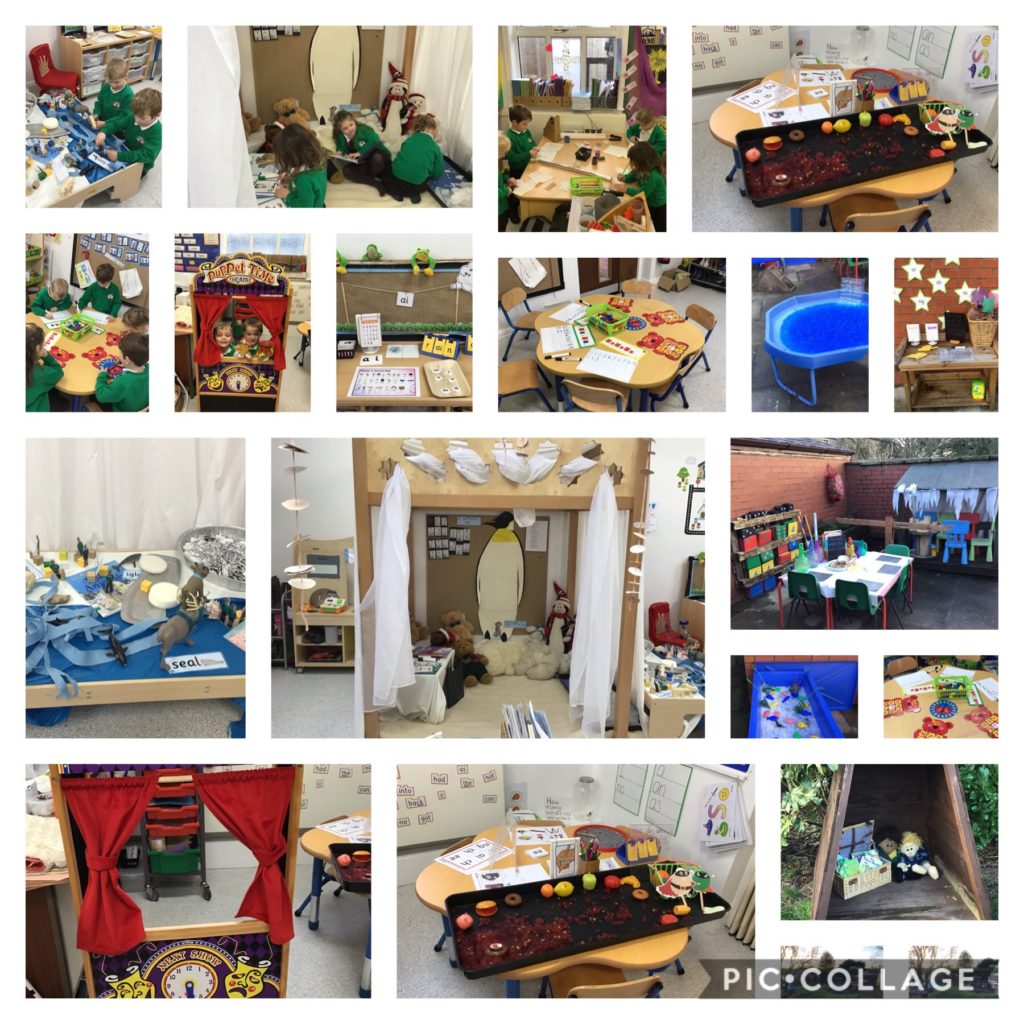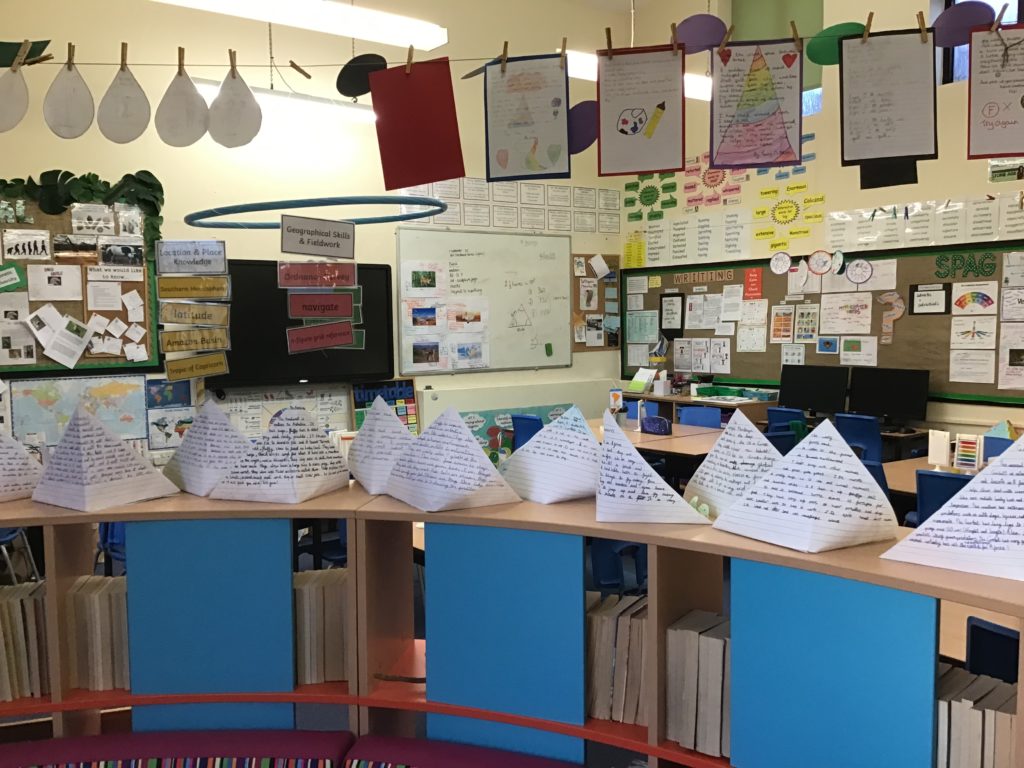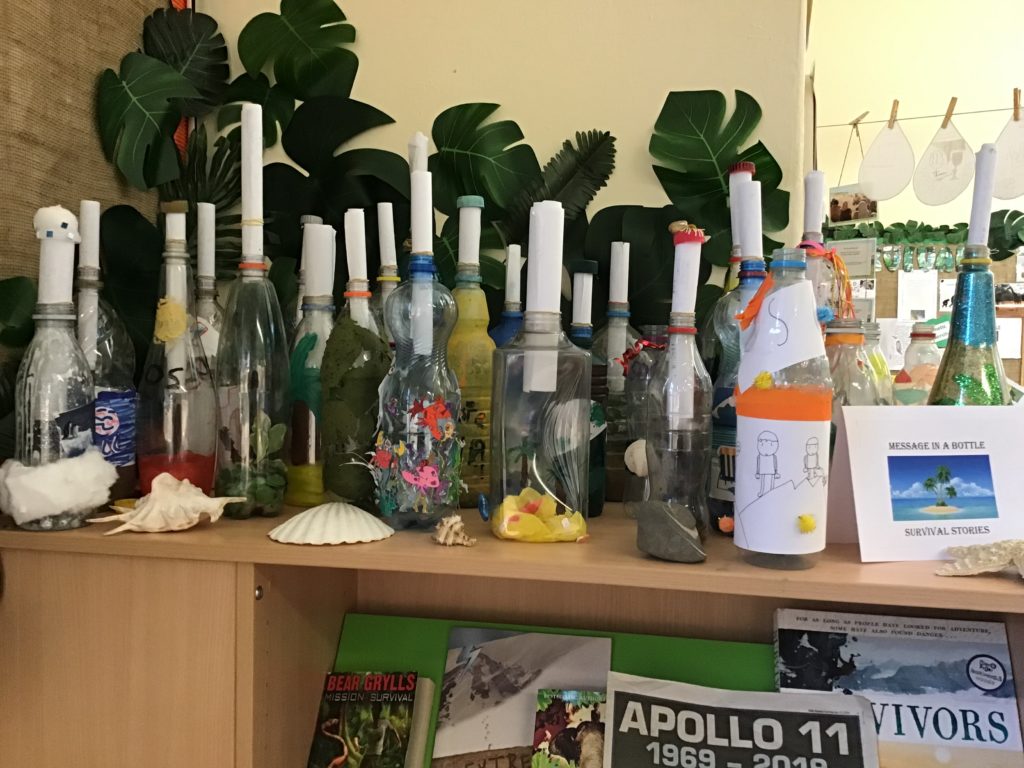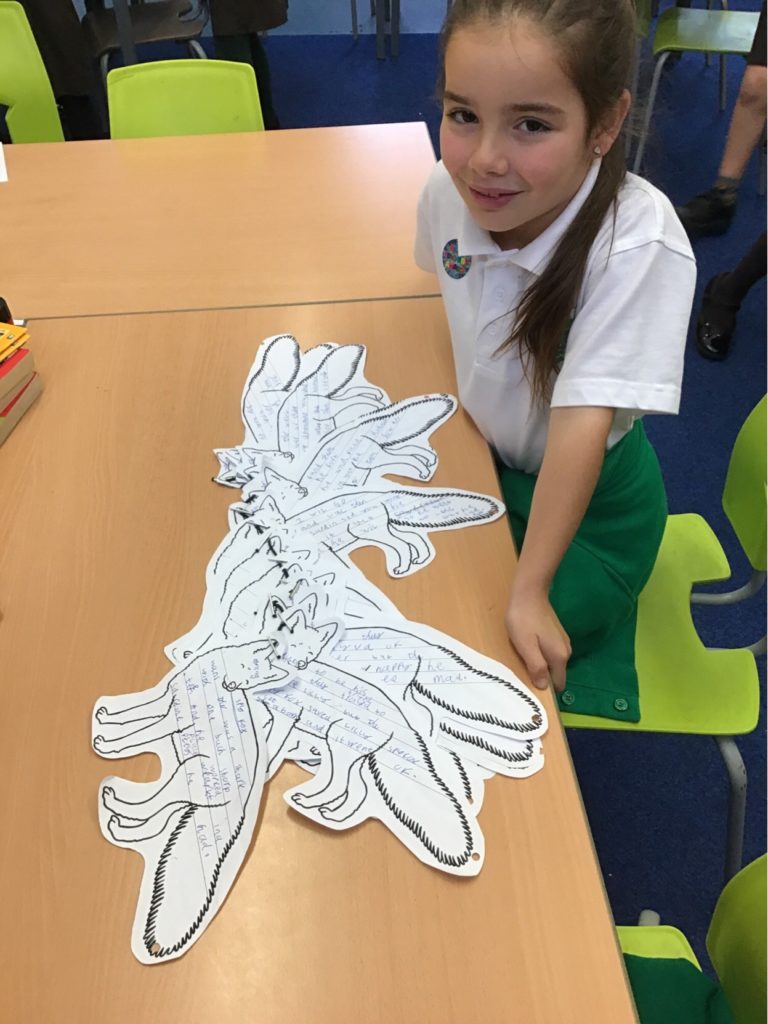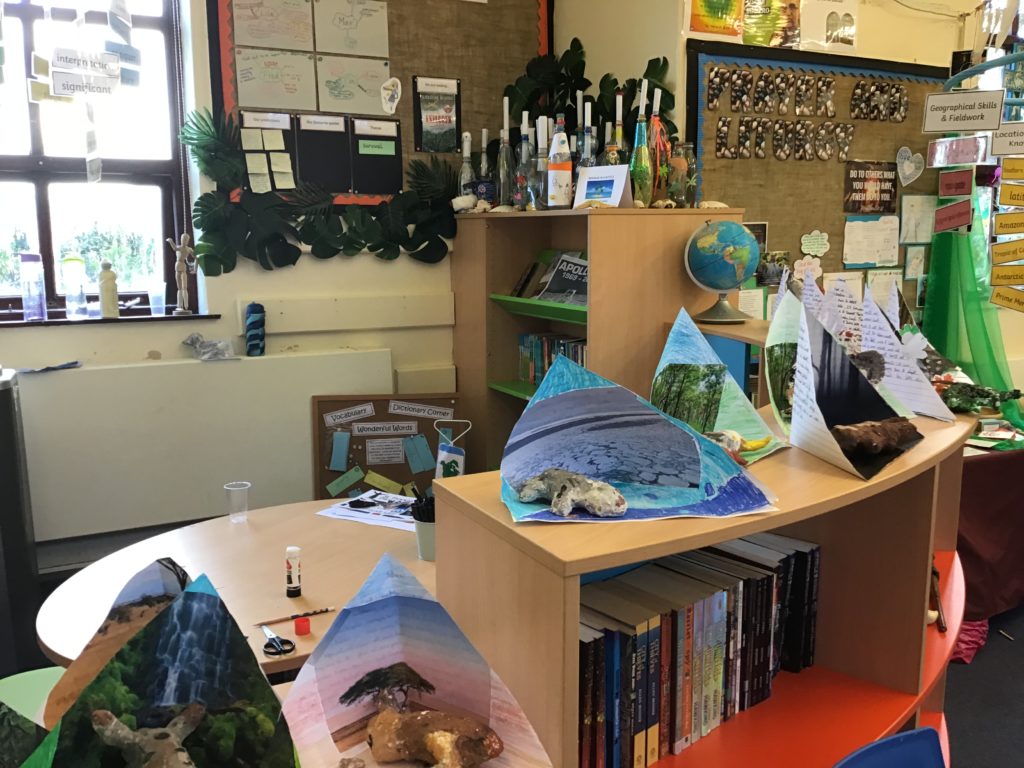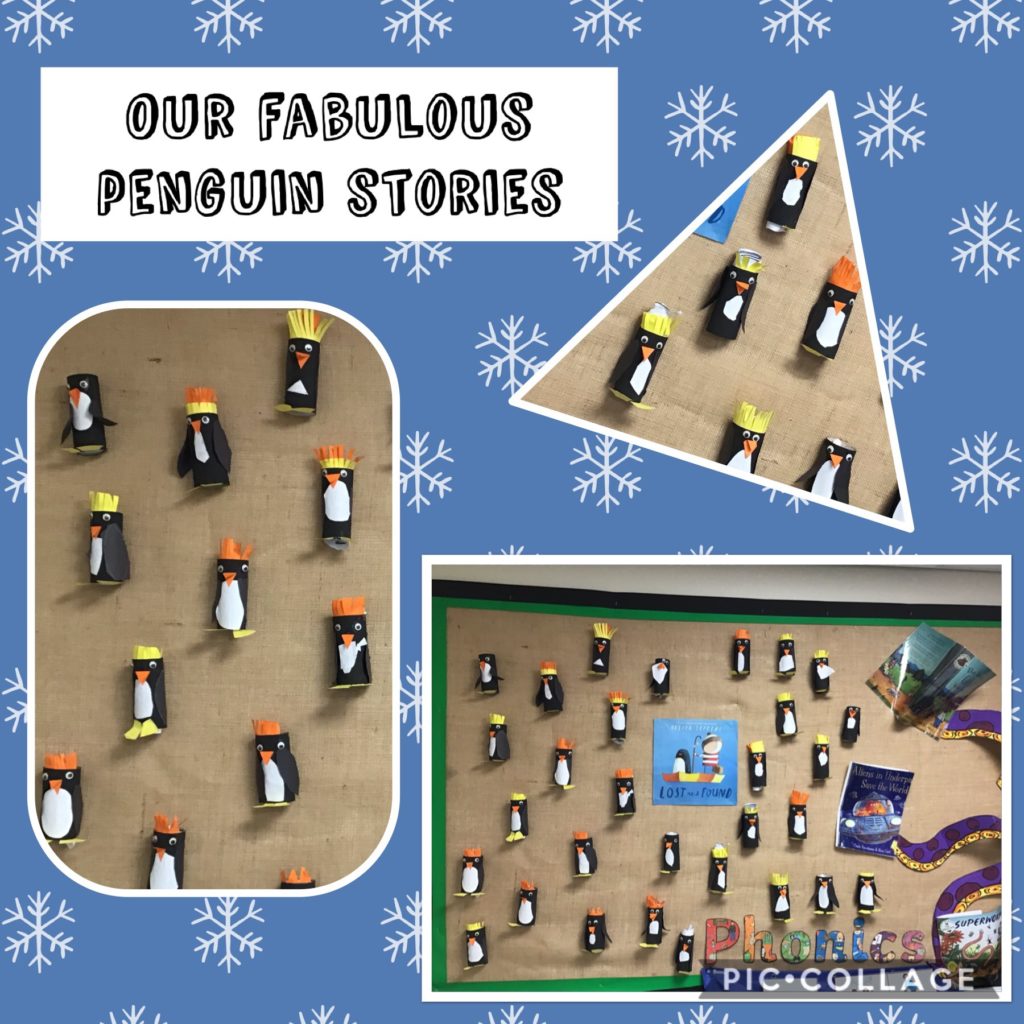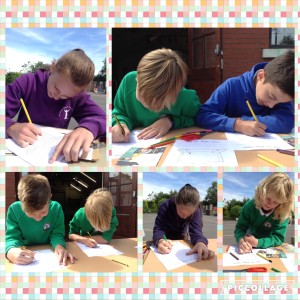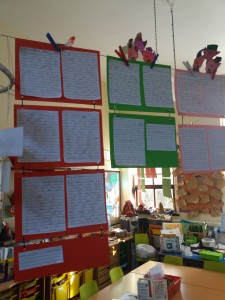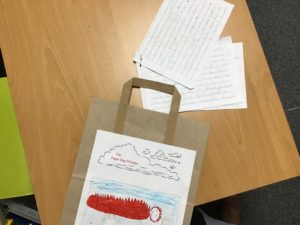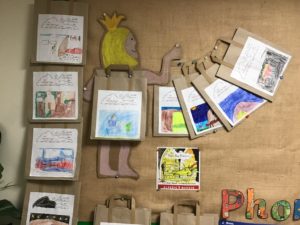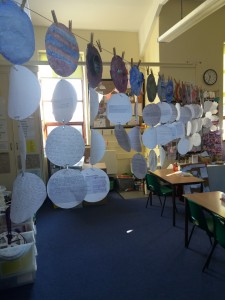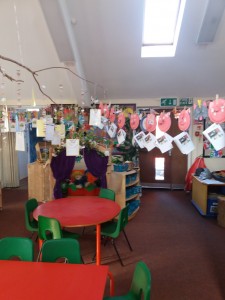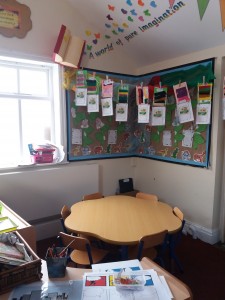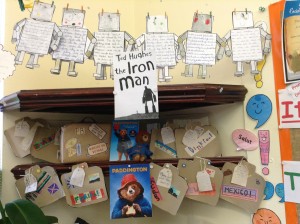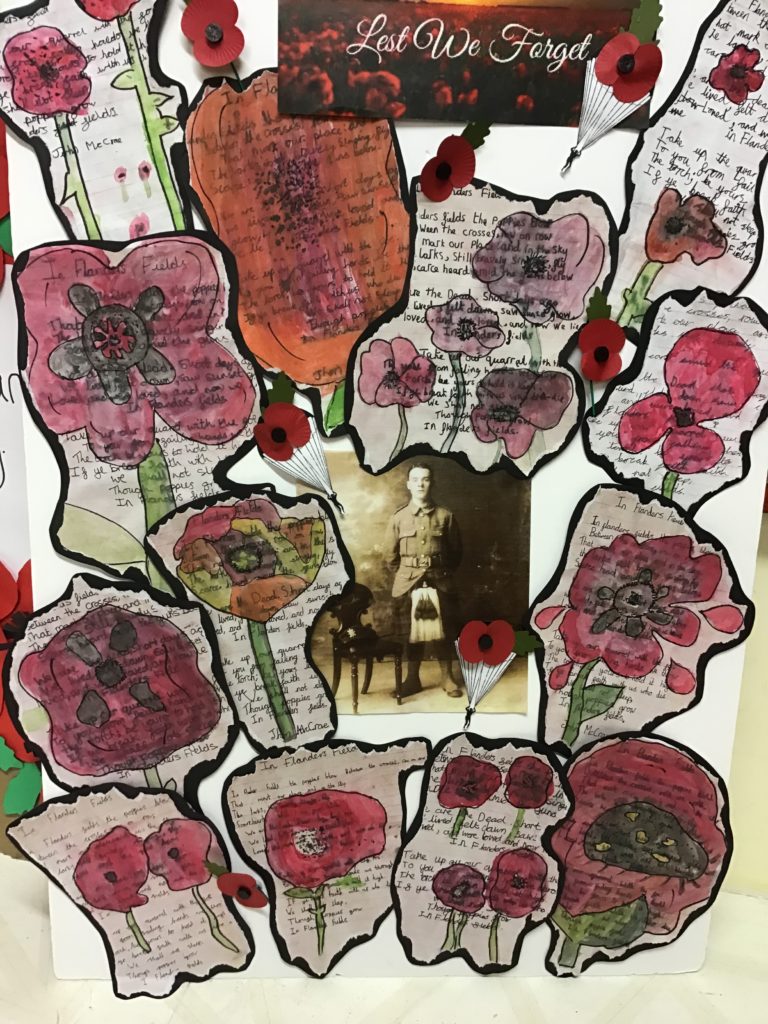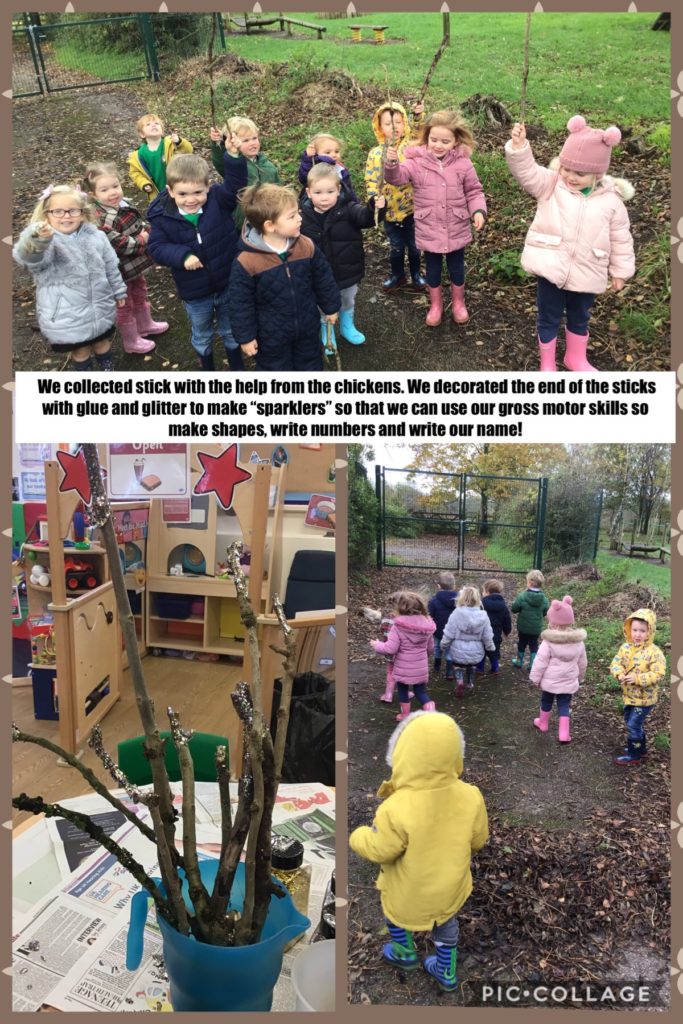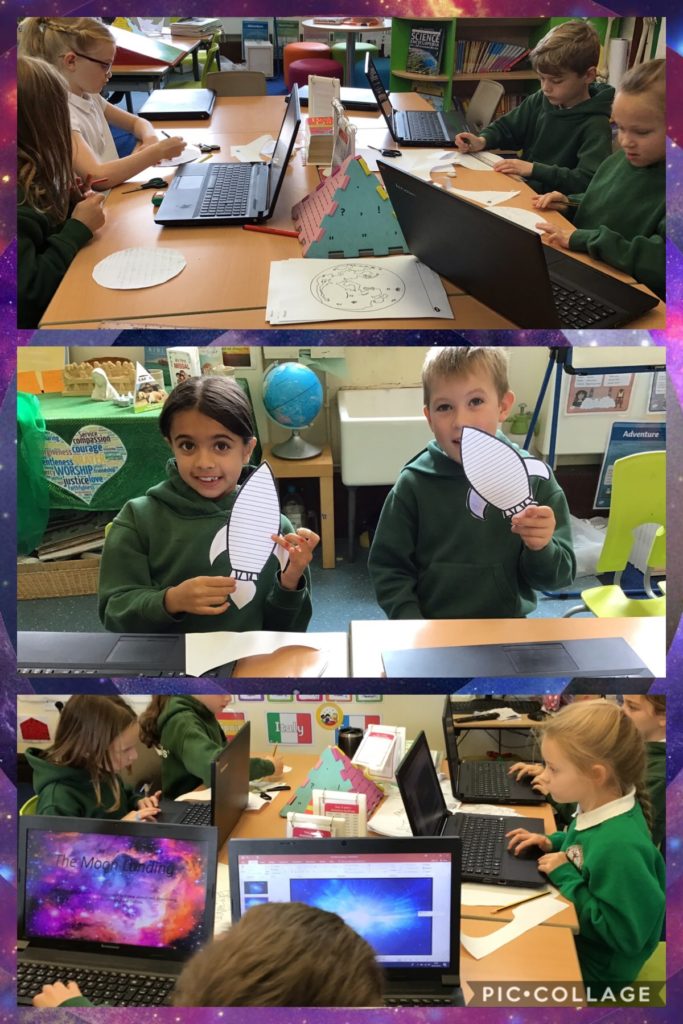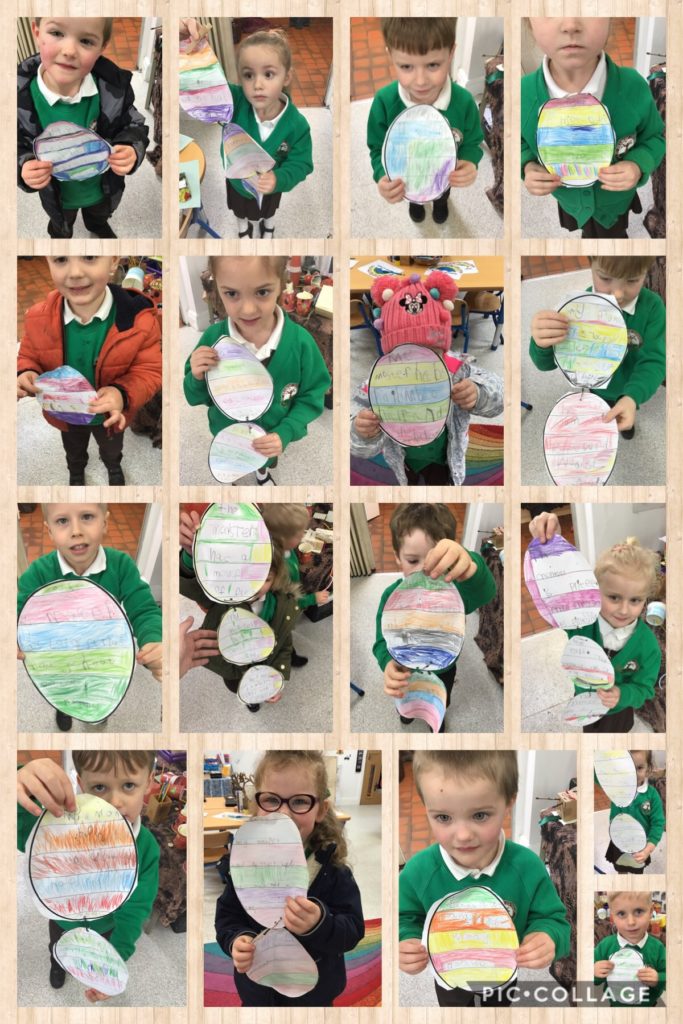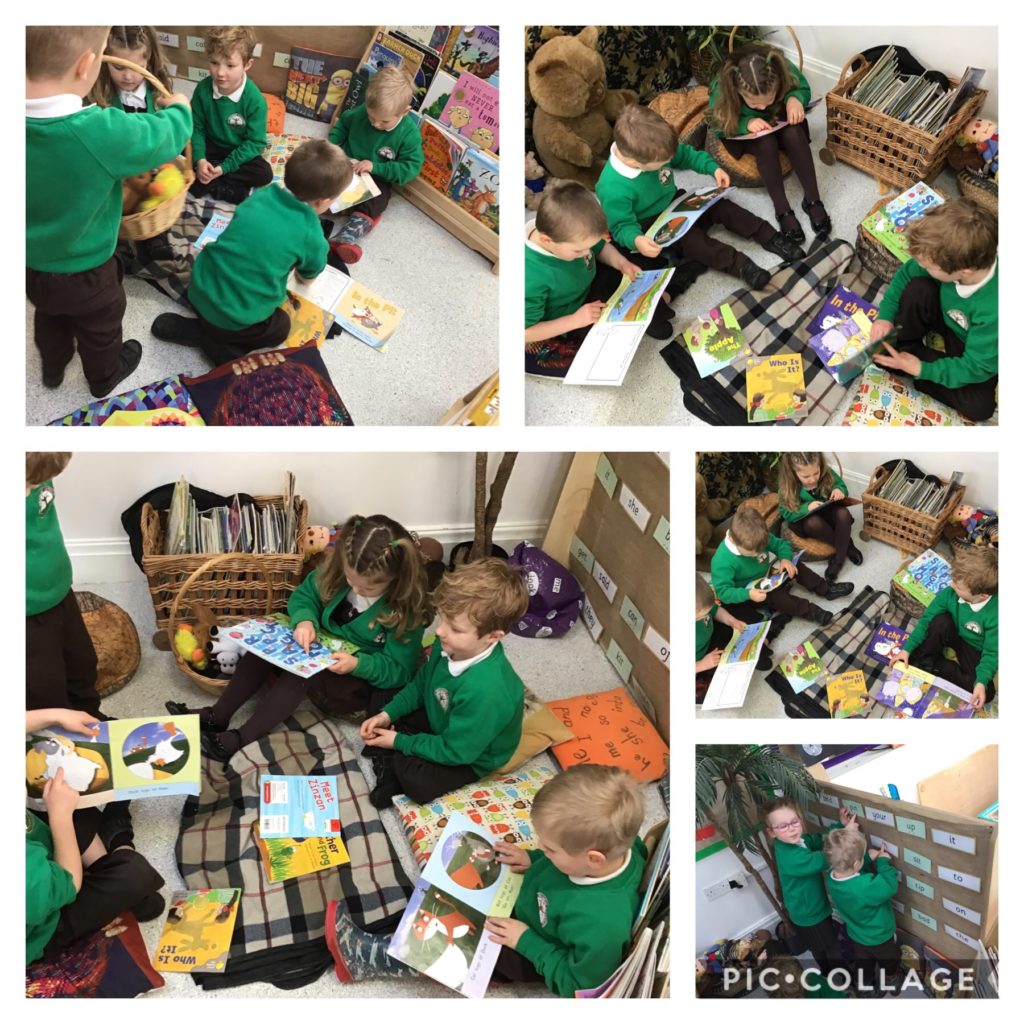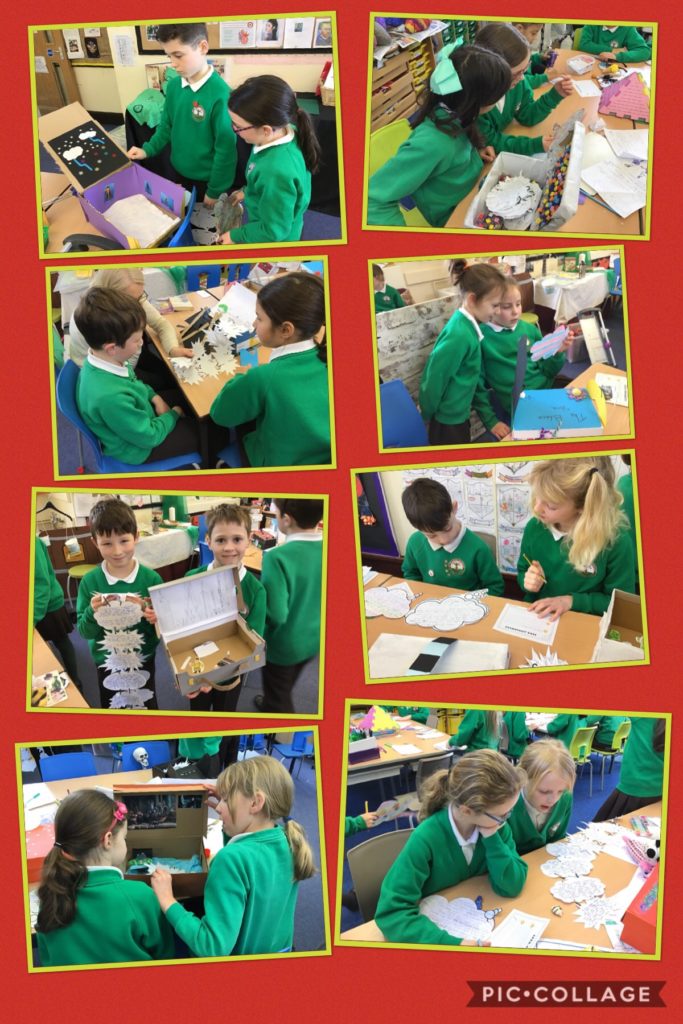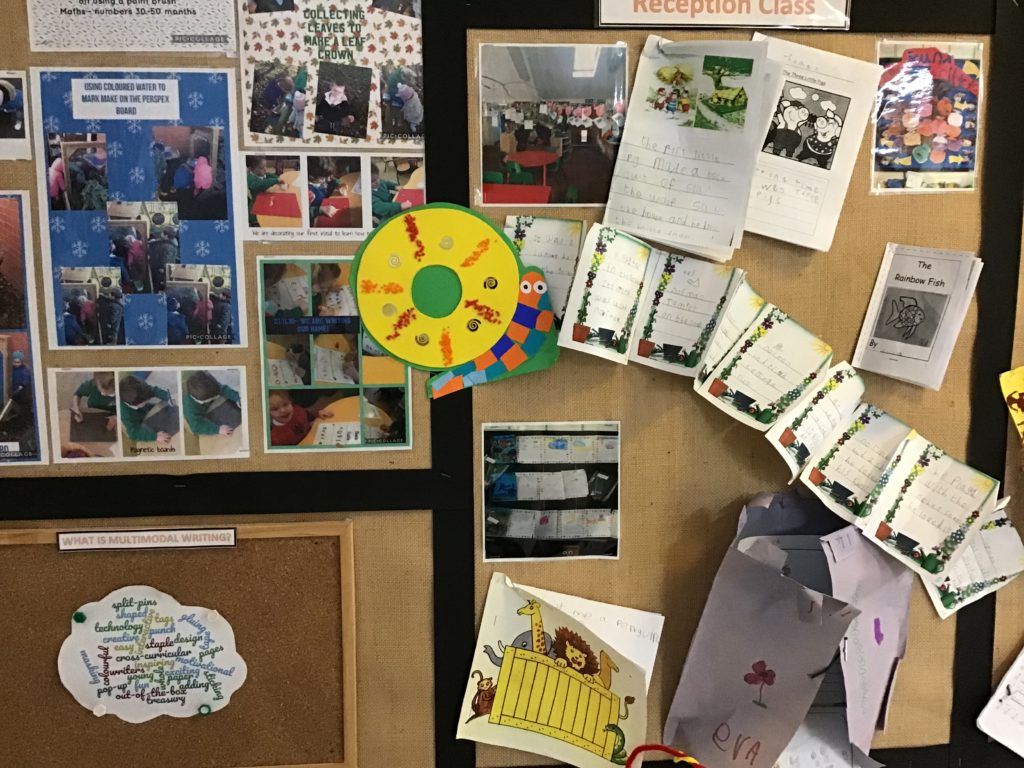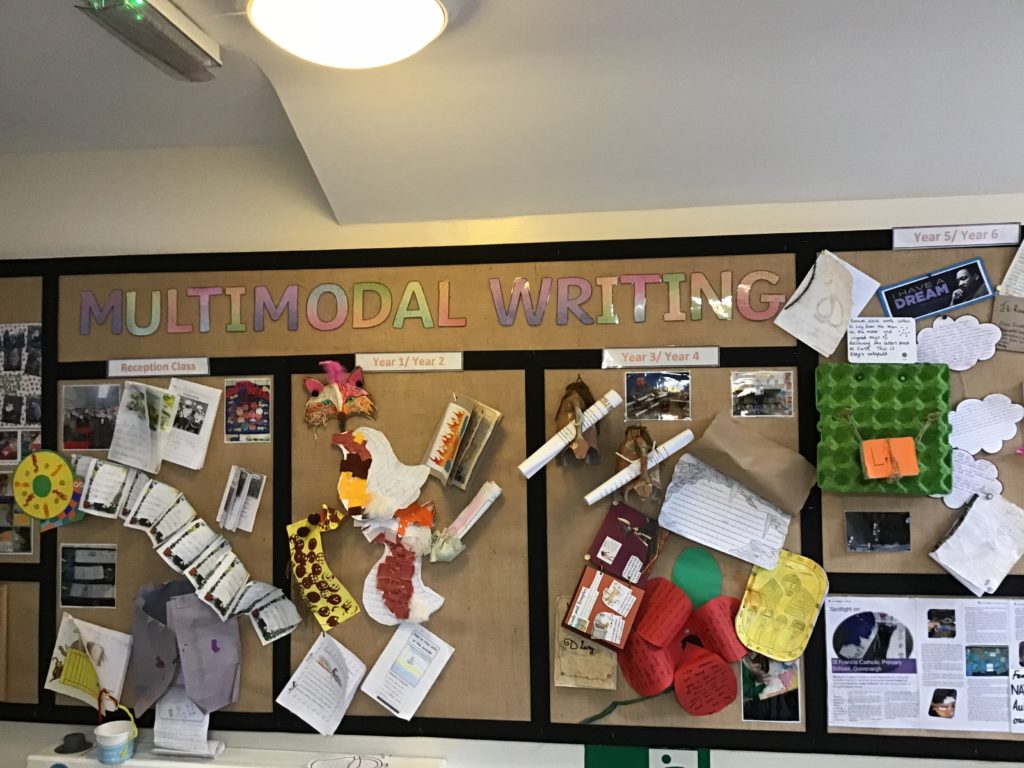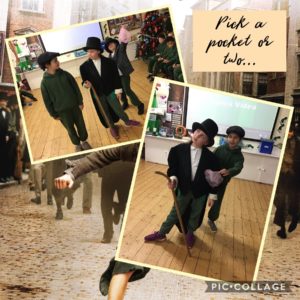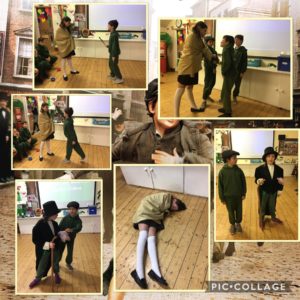Multimodal Writing
We want children to enjoy writing as much as possible. Our approach to writing is creative and it enables children to produce high quality pieces of writing in a cross curricular way. We love to link our writing projects to art and D.T. The children just keep adding the pages with masking tape, treasure tags or split pins. Have a look at some of our pictures below…
Here, we made toad a new waistcoat, wrote alternative verse to the duck’s ditty, wrote to the local MP about recycling and sent our poems to an author. We wrote our own Titanic flashbacks, spider poems and much more! 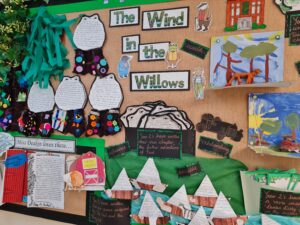
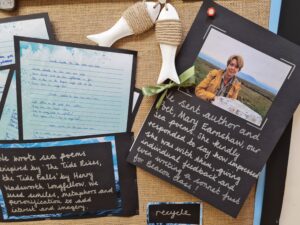
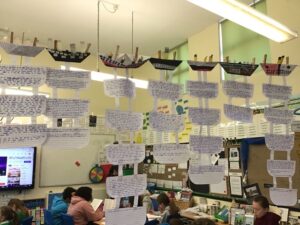
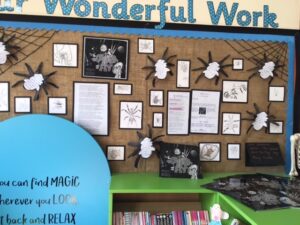
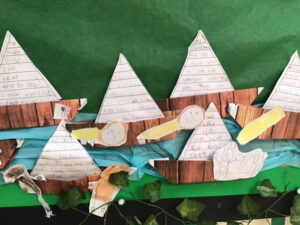
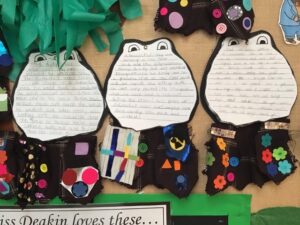

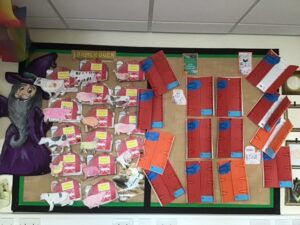
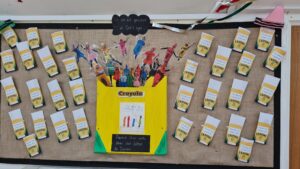
We teach English explicitly every morning but we love to explore other genres in other topics and lessons. The children all have an ‘exciting writing’ bookmark. We use these in all lessons so the children know what their individual targets are and can be reminded when needed; this greatly supports their personalised learning. The targets change and evolve all the time as they are achieved and we move on. Teachers write targets for improvement on the individual laminated bookmarks and so do friends-not leaving out the children themselves, who are trained to appraise their own work against clear success criteria. Writing takes the form of pop up books, shape books and lap books.
We want children to enjoy writing as much as possible. Our approach to writing is creative and it enables children to produce high quality pieces of writing in a cross curricular way. We love to link our writing projects to art and D.T. The children just keep adding the pages with masking tape, treasure tags or split pins. We love to make our own books, bringing writing to life with creativity! Have a look at some of our pictures below…
We teach English explicitly every morning but we love to explore other genres in other topics and lessons too. The children all have an ‘exciting writing’ bookmark, we use these in all lessons so the children know what their individual targets are for writing and can be reminded when needed; this greatly supports their personalised learning. The targets change and evolve all the time as they are achieved and we move on, children are trained to appraise their own work against clear success criteria.
We have working walls, we key vocabulary and key text features to support all the children with their next steps and support their writing. We follow a three phase system (Reading Phase, Gathering Content Phase and Writing Phase) across KS1 and KS2 in our English lessons to ensure deeper learning and understanding, allowing children to explore genres thoroughly, develop vocabulary, time to improve their work and end with an incredibly piece of written work!
We adapt learning for all through a variety of ways:
- All children have a personalised writing target bookmark with self, peer and teacher formative assessments.
- Explicit instruction: focusing on key learning, content, sequenced steps of introducing new content and modelling of tasks and expectations
- Knowledge organisers
- Adapted texts and WAGOLLS
- Using a wide range and choice of templates to suit the individual learner
- Pre-teaching vocabulary and features of new text types
- Adapted texts for confidence building and success
- The use of prompts, key questions for thinking, visual cues, scaffolding, clear learning outcomes, flexible working groups, support staff deployment, mini-plenaries and recaps and dual coding.
We believe children should be genuinely interested in what is being taught and our curriculum is designed to allow all learners to make connections and remember more.

Provide opportunity for all pupils to experience success by:
- Adapting lessons, whilst maintaining high expectations for all, so that all pupils have the opportunity to meet expectations.
- Balancing input of new content so that pupils master important concepts.
- Making effective use of teaching assistants.
World Book Day
Exciting Writing…and it really is!
Speaking and Listening
Reading and writing are a feature of most lessons. We place great emphasis on children becoming confident speakers and use every opportunity to develop children’s speaking and listening skills through giving them ownership and purpose of tasks and starting drama activities such as freeze framing, hot seating and role play from Reception class onward.
Our children speak in public, take part in productions and show visitors around school. The children are used to performing in concerts, which are exceptional, and they have a huge talent for performing arts. We have a professional sound system with head microphones and three quarters of the school plays an instrument.
We seize every opportunity to develop children’s speaking and listening skills.
We love to perform in assemblies. Have a look at our Oliver pictures below-it was an incredible start to our Friday morning assembly!
Spotlight_St Francis
CLICK THE ABOVE LINK TO READ ALL ABOUT OUR CREATIVE APPROACH TO ENGLISH IN
AUTUMN 2018 NATE MAGAZINE!
